accueil site > Paysage et patrimoine > 01. Teaching materials > 04. High School > To build up a bio-garden with ‘Artiste No Tahiti’ and API Formation
- 01. Fiches pédagogiques
- 01. Teaching materials
-
02. Jardin sans frontière : une école pour développer les compétences -clés en Europe
- 04. Partenaires
- 05. Rencontres transnationales
- 14. À l’école du jardin. Mobilités de formation dans les jardins d’Europe
- 15. À l’école européenne du jardin. Paroles de formateurs sur leurs formations "entre pairs"
- 16. A l’école auropéenne du jardin. Paroles d’apprenants sur leurs mobilités Erasmus+
- 19. Petit glossaire "européen" du jardin
- 20. Dissémination
- 21. Exploitation locale du projet
- 03. Un nouvel Erasmus+ : Le bleu européen comme étendard contre l’exclusion des adultes
-
09. Erasmus+ partenariato
-
Cammini del Blu in Europa
- 01. Incontri transnazionali
- 05. Progetti blu di partners
- 10. Percorsi europei del Blu
- 20. Storie blu
- 40. Disseminazione
- 43. Transcultural Carpet Blue
- 45. Missive blu
- 46. Glossario blu
- 47. Schede didattiche "Pedagogia del colore blu in Europa"
- 48. Illustrazioni delle schede didattiche : Mostra delle opere degli studenti
-
Giardino senza frontiere. Una scuola per lo slivuppo di competenze chiave in Europa
- 04. Partners
- 05. Riunioni transnazionali
- 14. Alla scuola del giardino. Mobilità di formazione nei giardini d’Europa
- 15. Alla scuola del Giardino. Parole di formatori sul loro addestramento "tra pari"
- 16. Alla scuola del giardino. Parole dei discenti sul loro Erasmus + Mobilità
- 19. Piccolo glossario europeo del giardino
-
Cammini del Blu in Europa
-
11. Erasmus+ Partnership
- 01. Transnational Meetings
- 05. Blue Projects of partners
- 07. European roads of the Blue
- 10. Blue stories
- 40. Dissemination
- 43. Transcultural Carpet Blue
- 45. Blue Missives
- 46. Blue Glossary
- 48. Roads of the blue : the file
- 50. Illustrations of the pedagogic file : exhibition of works of learners
-
51. Garden Without Borders : A School for Developing Key Competences in Europe
- 04. Partners
- 05. Transnational meetings
- 14. At Garden School. Training mobilities in the gardens of Europe
- 15. At Garden School. Words of trainers on their "peer-to-peer" training
- 16. At Garden School. Learners’ words about their mobility Erasmus +
- 19. Small European glossary of the garden
- 20. Dissemination
-
11. Partenariats Erasmus+
-
01. Les chemins du bleu en Europe
- 01. Rencontres transnationales
- 05. Projets bleus des partenaires
- 10. Routes du Bleu en Europe ...
- 20. Histoires Bleues
- 40. Dissémination
- 43. Transcultural Carpet Blue
- 45. Missives bleues
- 46. Glossaire bleu
- 47. Formation pédagogique : fiches pédagogiques et référentiel de compétences clés et transversales
- 50. Illustrations des fiches pédagogiques : exposition des travaux des apprenants
-
01. Les chemins du bleu en Europe
- 12. Pedagogic tools
- 17. Fiches pédagogiques
- 17. Schede Pedagogiche
Paysage et patrimoine
To build up a bio-garden with ‘Artiste No Tahiti’ and API Formationmardi 17 juillet 2012
 PROJECT
PROJECT
The training is for both future and professional gardeners. The main objective is the training of the interns in order to find a job and the development of complementary activities in an expanding sector : the Bio.
OBJECTIVES
![]() Breakthrough the sector : to be able to debate and get to know it and find out one’s own way inside it.
Breakthrough the sector : to be able to debate and get to know it and find out one’s own way inside it.
![]() Bio-garden : to be able to create one’s own garden or vegetable garden for one’ own nourishment.
Bio-garden : to be able to create one’s own garden or vegetable garden for one’ own nourishment.
![]() Bio market gardening : to be able to grow and sell products for one’s own living.
Bio market gardening : to be able to grow and sell products for one’s own living.
![]() Durable development : to be able to concretise and promote its principals.
Durable development : to be able to concretise and promote its principals.
![]() Healthy and economic food : to be able to geed oneself healthily and economically.
Healthy and economic food : to be able to geed oneself healthily and economically.
![]() Environment/ecology : to know how nature works and be able to understand and envisage one’s actions as regards the environment.
Environment/ecology : to know how nature works and be able to understand and envisage one’s actions as regards the environment.
![]() The training can be carried out along with a specific training on ‘Research and management techniques of the project’ in order to respond the needs of the unemployed, namely :
The training can be carried out along with a specific training on ‘Research and management techniques of the project’ in order to respond the needs of the unemployed, namely :
![]() Looking for a job : to be able to carry it out in an effective and durable way.
Looking for a job : to be able to carry it out in an effective and durable way.
![]() Bio installation : to be able to create a small business by oneself or with partners in the field of production, distribution, etc.
Bio installation : to be able to create a small business by oneself or with partners in the field of production, distribution, etc.
![]() Trade marketing : to be able to communicate and find out the needs apt to satisfy this activity and be able to sell.
Trade marketing : to be able to communicate and find out the needs apt to satisfy this activity and be able to sell.
![]() Tourism : to be able to organize and activate a welcome and pedagogical activity.
Tourism : to be able to organize and activate a welcome and pedagogical activity.
![]() Autonomy : to be able to handle one’s professional life in a long term project.
Autonomy : to be able to handle one’s professional life in a long term project.
![]() Addressees : public employees, unemployed and professional workers, gardeners and horticulturists.
Addressees : public employees, unemployed and professional workers, gardeners and horticulturists.
![]() Time : 11 courses of 3hrs and half.
Time : 11 courses of 3hrs and half.
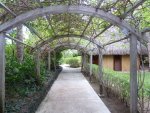 |
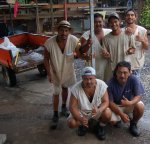 |
DEVELOPMENT The courses, mostly indoors, will be associated to visits and observations on the field in an alternation of theoretical and practical activities. Group works will be activated in order to favour cohesion and sharing.
Ground questions
1. How to develop a bio garden ?
![]() What is a bio-garden ?
What is a bio-garden ?
![]() To start a new garden or renew a pre-existing one
To start a new garden or renew a pre-existing one
![]() Design and organization of a garden space, orientation, walking paths and beds
Design and organization of a garden space, orientation, walking paths and beds
![]() Utilization of organic fertilizer.
Utilization of organic fertilizer.
![]() Protection of the soil by means of vegetal covers
Protection of the soil by means of vegetal covers
![]() Some hints for a good development and management of a garden
Some hints for a good development and management of a garden
2. Importance of the soil in a bio-garden
![]() The soil is the centre point for a gardener
The soil is the centre point for a gardener
![]() To learn about the different types of soil
To learn about the different types of soil
![]() To know the soil : physical and biological aspects. Soil profile
To know the soil : physical and biological aspects. Soil profile
![]() Organic and mineral elements present in the soil. Different types of humus
Organic and mineral elements present in the soil. Different types of humus
![]() Biomarker plants.
Biomarker plants.
3. Fertility of a bio vegetable garden
![]() How to enrich and upgrade the soil
How to enrich and upgrade the soil
![]() Different ways for making humus : the compost
Different ways for making humus : the compost
![]() Composting and compost container
Composting and compost container
![]() Surface composting : mulch and protectors
Surface composting : mulch and protectors
![]() Fertilizers and organic enrichment. Green fertiliszers
Fertilizers and organic enrichment. Green fertiliszers
![]() How to feed plants
How to feed plants
4. How to alternate cultivation in a bio garden
![]() Long-term organization of the garden. Why and how to rotate
Long-term organization of the garden. Why and how to rotate
![]() To find out a simple rotation system all the year round
To find out a simple rotation system all the year round
![]() Cycle of crops and their season needs
Cycle of crops and their season needs
5. How to till the soil in the bio gardening
![]() Importance of tilling the soil
Importance of tilling the soil
![]() Tools and techniques
Tools and techniques
![]() How to decrese or spare the work
How to decrese or spare the work
![]() Some ergonomic rules
Some ergonomic rules
6. Setting up of crops in the bio gardening
![]() Sowing or transplanting : advantages and restrictions
Sowing or transplanting : advantages and restrictions
![]() Sowing and transplantation : techniques to be respected
Sowing and transplantation : techniques to be respected
![]() Choice of the species and variaties of greens and flowers. Production of seeds
Choice of the species and variaties of greens and flowers. Production of seeds
![]() The moon’s and stars’ influence. Why not ?
The moon’s and stars’ influence. Why not ?
7. Crops care in the bio gardening
![]() To recognise and control weeds
To recognise and control weeds
![]() Mulching : fundamental technique of the ecological gardening. Choice of the way and when. Strictly confine the time of weeding !
Mulching : fundamental technique of the ecological gardening. Choice of the way and when. Strictly confine the time of weeding !
8. Health enhancement of the bio garden
![]() How to take good care of the garden ?
How to take good care of the garden ?
![]() How to avoid parasites and diseases ?
How to avoid parasites and diseases ?
![]() Association of plants and the bio products.
Association of plants and the bio products.
![]() Why not liquid fertilizer and brew ?
Why not liquid fertilizer and brew ?
![]() How to attract useful insects.
How to attract useful insects.
![]() How to get an advantegeous ecological balance ?
How to get an advantegeous ecological balance ?
![]() Global approach.
Global approach.
9. Blooming of the bio garden
![]() Summer crops, growth and fertilization.
Summer crops, growth and fertilization.
![]() Trimming, watering and cropping.
Trimming, watering and cropping.
![]() Autumn and winter transplantation.
Autumn and winter transplantation.
![]() The greehouse cultivation : how to manage the climate.
The greehouse cultivation : how to manage the climate.
10. Bio-simplified orchard
![]() Approaching the bio orchard.
Approaching the bio orchard.
![]() Setting up of an ecological orchard.
Setting up of an ecological orchard.
PEDAGOGICAL METHODOLOGY
The courses, mostly indoors, will be associated to visits and observations on the field of different green gardens in an alternation of theory and practice. Group works will be activated in order to favour cohesion and sharing.
EVALUATION
![]() Assessment of the training.
Assessment of the training.
![]() The main principles to be followed in order to economize time.
- An economic approach : choice of the size and of the production suitable to family autonomy.
The main principles to be followed in order to economize time.
- An economic approach : choice of the size and of the production suitable to family autonomy.
![]() Advantages in producing one’s own greens.
Advantages in producing one’s own greens.
![]() A landscape approach to the vegetable garden : how to associate ecology and aesthetics.
A landscape approach to the vegetable garden : how to associate ecology and aesthetics.
Auteurs :
Association "Artiste No Tahiti "
API Formation Tahiti















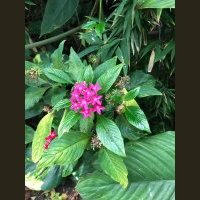
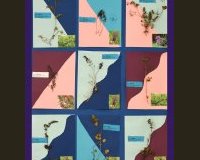
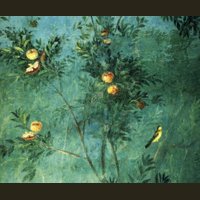
 Version imprimable
Version imprimable